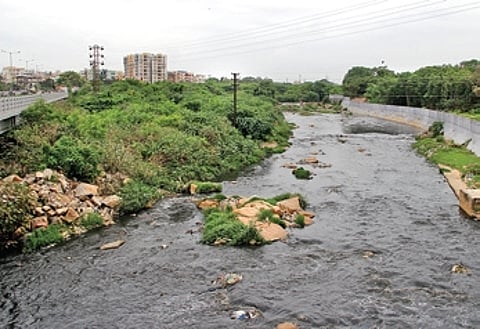

HYDERABAD: The Musi Riverfront Development Corporation Limited is going to deploy Floating Trash Barriers (FTBs) at 10 designated locations along the river.
The barriers are meant for collection, removal, uploading and transportation of floating materials such as trash, plastics, weed and hyacinth from the Musi river to the designated dumping yard of GHMC.
The designated locations of the installed FTBs are Bapughat, Attapur, Puranapul, Muslimjung Bridge, Chaderghat, Golnaka, Moosarambagh, Shivaji Bridge near MGBS (two locations) and Nagole.
To address this problem, the MRDCL has now decided to engage agencies that will be tasked with collecting and removing the garbage accumulated by the floating trash barriers.
Depending on the water flow and possibility, these locations have been identified. The MRDCL also considered the topography, especially the width of the canal and scope of trash flowing from adjoining nalas, before choosing the locations.The MRDCL will hire and operate the machinery for the removal of collected trash, weeds, and water hyacinth from the Musi River by mechanical means.
The operation would ensure a minimum efficiency of 30 minutes per tonne for the removal process. These barriers would collect around 2-5 tonnes of waste daily. The collected material would be transported from the 10 designated floating trash barrier locations to the Jawahar Nagar dumping yard, with an average lead distance of 26 kilometers.
The sources stated that the state government’s ambitious plans of revamping River Musi, to give it a makeover on par with London’s picturesque River Thames, first have to clear a gigantic garbage hurdle.
Continuous monitoring of the FTBs would be undertaken by deploying a minimum of two personnel at each location, working in shifts of not less than eight hours to ensure uninterrupted supervision.